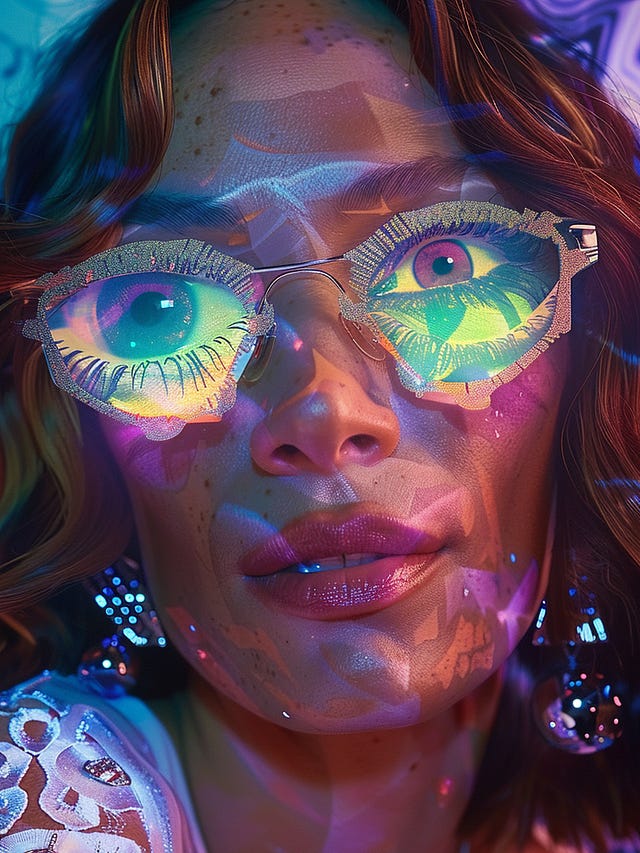How Kamala Became Brat and Mother
The presidential hopeful is harnessing the power of pop princesses Charli XCX and Chappell Roan, not to mention Gen Z internet culture. The result? An intergenerational femininomenon.
 Tiktok failed to load.
Tiktok failed to load.Enable 3rd party cookies or use another browser
For the first three and a half years of her vice presidency, Kamala Harris was a hazy figure, a shrug emoji of a politician. Though she was touted during the 2020 campaign as an heir apparent to President Joe Biden, as a president-in-training, Biden announced his plans to run for re-election as early as 2021, and Harris receded mostly to the background of his administration. She only occasionally popped up in the news, most forcefully while advocating for reproductive rights.
Oh, and there was also that coconut-tree meme, a story she told last year in a speech about how her mother used to tell her children, “You think you just fell out of a coconut tree?” It was an anecdote about historical context that made kind-of a good point, but the internet found it delightfully kooky and made it famous, or at least as famous as Chick-Fil-A girl or Mariah Carey’s “I don’t know her” moment.
This would, it turned out, be the meme that could change history.
Now, we can barely remember that Biden is still president amid the the deafening hype around Harris. We are all coconut pilled. Kamala is brat. Kamala is mother.
Just months ago, I listened to a New York Times’ Matter of Opinion podcast episode (title: “Why Do We Hate Kamala Harris? Do We?”) in which the hosts debated whether she was a major weakness for Biden as he ran for re-election. And on July 21, when Biden announced that he would not seek re-election and would endorse Harris’ run, I was nervous as I thought back on that: What if we do hate Kamala Harris?
Now, we can barely remember that Biden is still president amid the the deafening hype around Harris. We are all coconut-pilled. Kamala is brat. Kamala is mother.
There has been a hope explosion on the left, after years of feeling like politics was an endless slog to constantly, repeatedly, defeat a tireless and terrifying Donald Trump. And that hope is largely fueled by a surprising … strategy? Happy happenstance? Maybe a little bit of both? It has been fueled, in any case, by various forces, mostly very online forces, making presidential candidate Kamala Harris into a Pop Star Goddess. In what is perhaps the most pop-culture-fueled U.S. presidential race ever, celebrities could make a major difference. A new Harvard study shows that celebrity involvement truly moves the needle when it comes to voter engagement, from Billie Eilish getting folks to sign up as poll workers to Taylor Swift driving voter registration to a significant degree. So this could really work.
How do you beat a reality TV star at his own game? Make like Taylor and Beyoncé.
But how did we get to the point where pop stars are as powerful as Super PACs?
Subscribe to keep reading!



